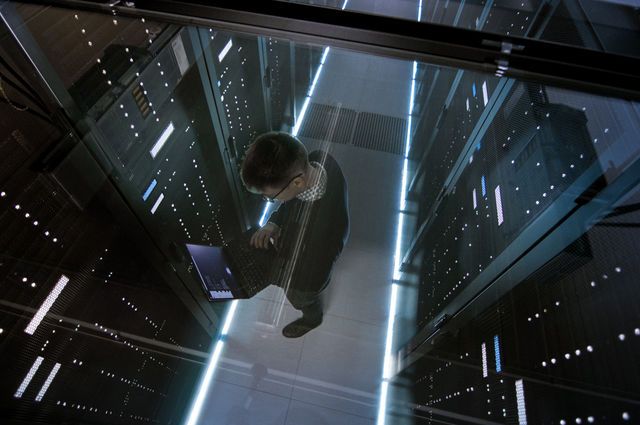Where does the PMS sit in the new technology stack?
21 experts shared their view
When it comes to hotel tech, we may all agree that PMSs are at the top of the food chain. It's semantically already in the name itself: a PMS is the SYSTEM used to MANAGE your PROPERTY. This gives the software connotations of centrality in operations. However, a new wave of leaner systems is rising: PMSs are becoming "hubs" rather than all-in-one solutions, using open APIs to allow users to plug in other software and tools as needed. These systems are less about "managing the property," and more about integrating third-party software.
In this environment, where do PMSs sit in one's tech stack? Is the classic notion of PMS outdated? Will the future of hotel tech be less reliant on PMSs as we know them?

This World Panel Viewpoint is sponsored by Agilysys, Inc.
More information
The PMS will lose the mentality of a system and the capabilities will dissolve into cloud-centric services. Instead of all-in-one offerings the future will be driven by ecosystems evolving around a limited number of platform vendors.
Today, PMSs are the major bottleneck for hotels to be innovative and agile. These limitations do not only apply to hotels, but also to all technology in the industry. Property management systems put artificial restrictions on the functionality of their APIs or ability to access the data that they collect. On-premises and even cloud PMSs have ulterior motives when developing their products to favour their own “all-in-one" features. In this sense, the classic notion of any PMS is not only outdated, but already obsolete.
The future direction of the industry will be geared toward leaner systems where the traditional PMS functions like inventory, availability, reservations, and integrated payments, all work together on top of a transaction platform - acting like a hub for all of the available third-party hotel applications to access this information through two-way API connections. It will be incredibly easy to plug-and-play with new solutions available in app stores, similar to the Apple App Store and Google Play Store.
In this likely version of our multiverse, the PMS will be decentralized in favour of an ecosystem of specialized apps that can be used together. This way hoteliers gain the #FreedomToCreate their own hotel tech stacks with industry-leading and custom applications.
We're not talking about science fiction; this exists today with lean features of PMSs already available on the market and require very little investment and can be tested for free and installed all by yourself. This means no more costs for upfront or professional services, very short migration times from legacy PMSs, and a dynamic infrastructure ready for whatever the future may hold.
Any hotel, hotel group, or accommodation provider has the power to select the exact features they want and use a hospitality platform to develop a truly unique digital guest journey.
The PMS is now just “another” system used by the hotel, just like a POS or CRM or SPA system. The growth of Open API service oriented middleware is the way forward. Layering on top of this customer data platforms is truly the way to go forward and will give many returns to the hotels that can adopt this. With COVID we have seen and will continue to see more contactless technology, growth in kiosk check in, mobile key. After that facial recognition will come in and more voice options, from reservation to room control. For anyone who wants to adopt this kind of technology you need an open and adaptable technology stack. Having a closed PMS centric, interface specific stack will not be able to cope with this. The problem of moving away from PMS centric to an open API is twofold. 1: Mindset, some hoteliers still think or are told that the PMS is the centre of their universe and should always be so as “its always been like that”. 2: to quote the great Fergus Boyd “Changing your PMS is like having open heart surgery”.
When it comes to integrating different technologies, the devil really is in the detail. The only way to truly understand how a software works, and crucially, if it works for you - and with the other softwares you use, is to trial it. And to trial it, you need to integrate it, quickly, and cheaply, which means open APIs and free integrations.
However, even then, it's worth pointing out that free doesn't really mean free, as depending on the system, you could spend days or even weeks configuring it.
At a conference a couple of years ago, I heard a hotelier relaying how their new open API PMS allowed them to integrate a chatbot to the hotel PMS and try it out for free. The PMS integration was totally free, and the chatbot offered a month's free trial. Amazing. They then went on to say that just a week later, after they had finished configuring the chatbot, they were ready to trial it. Amazing? That week's work still had to be paid for...
To my mind it's a given that PMSs will have to have open APIs going forward. There is so much great new technology being developed, and open APIs are essential for hotels to be able to try them out easily and find what works for them.
However, it's still far from straightforward. Many exciting new technologies, like chatbots, voice assistants, in-room tablets, hotel apps & PWAs, city guides, and unified inboxes offering multi-channel communication like SMS, WhatsApp, messenger, etc, all need extensive configuration. And a huge issue is that there is currently no way (at least that I'm aware of) to do this in an integrated way that can be easily managed and kept up to date.
I'd love to see the PMS evolve to include a 'headless content management system' to store the hotel specific content needed for these technologies. Content could then be automatically synced via the PMS integration, making it truly 'free' to integrate and try out new technologies. It would also make it possible to universally update content without have to individually log into each system.
Coincidentally, I heard the same hotelier speaking on a webinar recently. Having enthusiastically adopted numerous technologies made accessible by the open API integrations with their PMS just a few years ago, the hotel is currently trying to reduce the number of technologies in their tech stack. The reason being that guests are frequently being presented with incorrect information - whilst their technologies were integrated, their content remained siloed, and it has proved impossible to keep their content up to date across so many systems.
The PMSs role is as we know it, is being transformed. More 3rd party integrations than ever, the rise of niche app that provide basic but highly streamlined processes, connected via API Technology: the perfect recipe to boost hotel and hospitality company innovation. As a result, the PMS is losing functionality, functionality that has been added in the past, that was there because there wasn't any other app that will provide those functionalities in the market.
But all in all, in my opinion, the PMS will be continuing to be in the heart of the PMS tech stack. Main hotel processes will remain to be supported by the PMS functionality, such as Check-In, Check-Out, Invoicing, House Management. There is not any tech substitute that will manage these key pieces of the guest experience and hotel operations.
The PMS is understood as the transactional engine designed to boost and bring efficiency to the hotel's operations, ready to connect with any platform easy and most quick and cost-effective way.
I tend to agree. A lot of people knock on the PMS as a legacy system and try to find other names for it. However I think the name is quite good. It says what it does quite well. But the idea that there's one system that manages everything is not practical and does not evolve well. Some parts of the system are bound to become outdated and they become the weakest link. Other systems in the hub or platform category are smarter because they provide the core system and provide APIs for other systems who can do their part better. In the CRS space this was done quite well with many of the systems built to integrate with multiple providers. The only issue being that CRS was a fix for outdated hotel systems that couldn't deal with online distribution.
Today's Property Management System (PMS) is the hotel 's command center for rooms and F&B management, sales and catering, distribution, availability, pricing, reservations, guest interactions, issue resolution, housekeeping, reporting, billing, guest communications, etc. and is often described as "the central nervous system of the hotel operations."
In other words: from a technology perspective, the hospitality industry has always had a PMS-centric hotel tech stack approach. The legacy PMS platforms have a number of serious disadvantages: a) too expensive to install, train staff and maintain, b) their "all-in-one solution approach" stifles innovation and prevent quick adoption of new functionality needed to meet new guest requirements or sudden changes in the market conditions, like the contactless experience from last year, and c) as closed systems they are reluctant to open up to third-party integrations, applications and solutions, depriving the property and its guests from some very innovative and much-needed applications and services.
In spite of all the bad reputation - well deserved by the PMS in the past - I believe the PMS-centric tech stack will continue to dominate hotel technology in the future. The question is, what kind of a PMS? Luckily for our industry, the future is already here in the form of a cloud PMS with Open API (application programming interface) integration platform, just on time in this most challenging era in our industry.
Ever since the emergence of the cloud-first PMS platforms like Mews and Cloudbeds, there has been a monumental shift in the PMS vendor community's mindset: from closed system mentality to cloud PMS with Open API mentality. At Oracle Hospitality, with the adoption of the Oracle's self-service cloud technology tools, the OPERA Cloud PMS with Open API has become the most important innovation strategy.
I believe over the next 5 years the adoption of cloud PMS solutions will explode and this will be the highest growth component of the hotel tech stack, followed by revenue management systems (RMS) and customer relationship management (CRM) solutions.
Why the cloud PMS? Low costs, efficiencies, higher productivity and data security aside, in the near and mid-term a full-service 3-4-5-star hotel will need over 100 plus APIs with third-party tech applications and solutions to be able to function and meet the basic needs and wants of today's digitally-savvy travelers. These include mobile and contactless guest experience, mobile locks, issue resolution apps, guest messaging, virtual concierge, IoT devices and utility management, smart room technology, entertainment hubs, CRM programs, etc.
This type of connectivity is impossible or super expensive to achieve with a legacy PMS, which is hostile to any third-party interfaces by default. A cloud PMS with its Open API and integration hub instantly solves this problem. Good examples: The new Oracle Hospitality Integration Platform with 3,000 API capabilities, StayNTouch Integration Hub with 1,100 APIs; Protel Air PMS Marketplace - 1,000 APIs, Cloudbeds PMS - 300 APIs etc.
There is no doubt in my mind that the cloud PMS with Open API facilitating connectivity to hundreds and thousands of smart, innovative and much sought-after applications and solutions is the clear winner today and tomorrow. The only question is when to switch? My advice? The sooner you switch, the more excellent the guest experiences you provide to today's super tech-savvy customers, the more you will know about their preferences, the better you can communicate with them, the more loyal customers you can win thus generating more repeat business, the more you can empower your employees, the more automation and operational efficiencies you can implement, the faster you can improve the bottom line and the sooner you can outshine the competition.
What is the reason why hotels exist? The guest! A PMS is a system to manage a property but not to manage a guest otherwise the name would be GMS - Guest Management System. Hotels lost control of their guests, having about 30 profiles for each guest in multiple systems along the customer journey. That is the reason why hotels are so behind the OTA's and why Big Data does not mean anything or drives much value for our industry.
The situation is caused by the fact, that for more than 40 years the PMS is the center point of the IT stack in a hotel. This needs to be changed. A real CRM or better a data management platform, which is able to create and maintain a central profile for all systems along the customer journey is the holy grail to finally fight back the OTA's and to become a winner in our digital Big Data age. The PMS is a very important part of the IT stack but not the centerpiece anymore. It must connect in real-time to the system which manages the Central Profile and the cloud makes this much easier compared to on-site installations which still dominate our industry.
It will be still necessary to connect different applications to the PMS, like the POS, IBE or CRS, but it must be clear that the PMS is not the leading system, the leading system must be the one who stores the Central Profile and such systems must pull/push all guest relevant data from the central data depository.
The future is already here, but hoteliers have to get there by implementing a guest-centric IT strategy, and this can be a harmful exercise. But it is the only way to get on track again and to become a Big Data winner.
In our discussions with general managers they usually say something like, “I don't want to think about technology. I want to focus on my core job - serving guests. I need technology that allows me to do that – and not be an impediment or a distraction.”
But even within that context, the Property Management System (PMS) remains at the heart of hotel operations. And if the PMS isn't fit for purpose, then all the other connected systems – not just operations – will deliver sub-par performances and customer service will suffer.
Having the right PMS provides hoteliers the opportunity to enhance the guest experience, improve operational efficiency, and increase revenue. It also gives hoteliers the peace of mind that their data is secure, yet retaining its high performance and ability to help grow the business.
However, the PMS does NOT have to do everything. There are excellent providers, who are domain experts, specializing in everything from guest facing technology to revenue management to marketing. They invest significantly in their solutions and offer hoteliers relevant expertise. But their full potential and value can't be realized without an open PMS that can execute integrations simply, rapidly, and efficiently. A PMS lacking such attributes is like a heart without veins and arteries – unable to reach and serve all the vital parts of the organization. A leading PMS also provides a vast marketplace of partners, giving hoteliers a great view of all pre-integrated solutions. It makes it easy to browse, select, and install.
Ultimately, a leading PMS does not compromise data access for integrated systems and provides quality, scalability, and security – working in perfect unison with its entire ecosystem.
I don't think the traditional role of the PMS is being challenged. The evolution of technology has presented new opportunities for hotels to streamline their operations, increase their revenue and profit, and improve their guests' experience, through the offerings of multitudes of technology vendors that complement traditional PMS functionality rather than replace it.
While there may be overlap between some of the peripheral functions that the PMS provides out of the box and the features that may be offered by third-party applications, the core of the PMS remains.
Rather than a future that sees hotels become less reliant on the core function of the PMS, we are facing one of better technology made available across the full stack and facilitated by integrations to a PMS's core functions. I don't believe in the foreseeable future that we will see PMSs become integration-only services without any management capability. We're looking at a future where hotels can have more power than ever before, but while it's an interesting notion that a hotel could run off a bunch of integrated applications that don't need a central management capability, it's not a realistic proposition given the amount of coordination and collaboration that hotel would need among its vendors for a seamless operation of its systems. The track record of widespread seamless integrations between PMSs and hotel technology applications is not particularly strong, and has been very slow to evolve over the last 20 years. I don't see that changing anytime soon.
Therefore, the more relevant question is: how much functionality should the PMS build itself beyond its traditional functions, and how much should it facilitate the expansion of hotel utility by integrating to third-party applications, to allow hotels to maximise the benefit of these?
The PMS houses the most comprehensive hotel data, and is therefore instrumental in allowing other hotel applications to function better by providing a rich source of information. A hotel wishing to use a third-party CRM, for example, can be much more effective if their CRM is kept updated in real-time with the information contained within its PMS. In this sense, the PMS can be an enabler of the exchange of data.
However, the PMS market is highly fragmented. Most PMSs also lack large development teams and private equity funding. For these PMSs, they can best serve the changing needs of their hotel customers by allowing third-party vendors to integrate to their system easily and quickly, as opposed to trying to build it themselves.
Some PMSs have raised large amounts of money and try to be a one stop shop, claiming they do everything for a hotel. They may do a wide range of things, but can they do everything well, or nearly as well as those vendors that are best-in-class? There is a reason Apple's App Store exists. If not even Apple can build everything well, what chance does a PMS company have? When PMSs try to be all things to all people, they run the risk of dropping the ball on their core offering of managing the operations of the hotel, and this is something they must be wary of when deciding what to prioritise beyond their core function.
As the founders of “unburdened hospitality”, I don't ever see a one size fits all approach to hospitality, or hospitality-tech, working for a marketplace as diverse as ours. Today, hospitality tech stack options range from hotel-in-a-box solutions that promise a full-suite of functionality in one application all the way to traditional “OS” type solutions which simply orchestrate the functionality of multiple applications cobbled together to operate a property. In theory your PMS today can do everything, or it can do nothing, but facilitate everything.
In reality, the future of the PMS is as the “heart” of a hotel's tech stack, providing the most critical functions of the hotel, and being the organ through which all other functions are centralized and recirculated to staff, guests, and owners alike. We use the word “heart” instead of “hub” because the PMS is more than just a liminal holding space for data 一 it's the central organ on which all other platforms in the ecosystem depend.
Success in the post-pandemic hospitality market will be determined by technology's ability to deliver unburdened flexibility to hotels: Flexibility to capitalize on new technology and overcome new challenges, flexibility to future-proof and scale your business, and most importantly, flexibility to implement your brand's unique version of the ideal guest experience.
This level of flexibility simply cannot be achieved with a single application 一 or even a “walled garden” of several applications under one corporate umbrella. Even something as simple as mobile check-in requires the seamless integration of at least four different applications: A mobile PMS, a contactless payment gateway, a keyless entry system, and a platform for mobile guest messaging. Each one of these applications will present hotels with advantages and disadvantages for their business model and brand. That's why it's so crucial to have a PMS that is highly capable, highly functional, but also highly customizable. To achieve the final objective, a PMS must be both a highly functioning core-application and a robust platform based on an open-API architecture that allows for the seamless integration of third-party applications to maximize specialization in critical areas for those hotels that require an enhanced level of functionality without sacrificing seamless performance.
Just like a strong heart, an unburdened and flexible PMS will deliver positive ripple effects throughout your tech stack. For example, enhancing your open-APIs with powerful and simplified web hooks will increase both the efficiency and accuracy of your data exchange, leading to more personalized and effective digital touchpoints and guest interactions. A PMS with mobile guest check-in and robust automation can leverage these touch points by sending targeted offers for room upgrades, amenities, and monetized early check-in/ late check-out directly to your guests' smartphones 一earning valuable ancillary revenue in the process. The PMS of the future isn't just a property management system, it's equally a property monetization system.
A PMS with built-in mobile and kiosk-based check-in can let you break free from the front desk, and reimagine your lobby as a guest-centric space for dining, socializing and working. Hotels can take this concept even further with a PMS that can process hourly reservations, delivering monetized co-working space for remote workers, day use rooms for layover travelers, or golf and spa reservations for guests looking to get away for an afternoon.
While the “classic” PMS operating on desktop computers and powered by in-house servers has been outdated for many years, mobile & native-cloud PMS systems add tremendous value in their ability to both serve the critical functions of hotel operations while also enhancing connectivity of varying specialized solutions. In the evolving post-pandemic era, customers will be returning to travel with a vengeance, and will stay at properties that offer a unique and exceptional guest experience. Hotels that invest in a PMS which is fast, reliable, scalable, flexible, and customizable will be in the best position to succeed in this emerging environment.
Over the years, in my job as a journalist, I had the pleasure of interviewing the CEOs of most of the PMSs currently available in the market (and some extinct ones, as well). During these conversations, I've always found it fascinating to observe how diverse their approaches towards technology are. Most vendors, especially from the "new wave" of cloud providers, seem to take a distance from the canonical concept of property management system, with some even rejecting the PMS acronym tout-court. Others, vice-versa, defend the notion of a centralised, all-in-one system to death.
My view on the subject is, probably, somewhere in the middle. Even though I wish for a more open-API, inter-connectable, plug&play industry (typical of new players), I still feel that traditional PMSs play a central role in the day-to-day hotel operation and, as such, should not be relegated to simplistic "connection hubs."
Especially in more complicated environments, such as resorts or groups, where you have multiple outlets, point-of-sales, and revenue streams, having a robust PMS can make all the difference in the world, both in terms of efficiency, quality of reporting, and costs. Sure, smaller properties, such as city boutique hotels, could probably operate even without a PMS, and rely entirely on other systems, such as CRMs, but, if you've ever worked or consulted for a bigger property/chain, you know that you simply cannot run it without a "real" property management system.
So, to close up, I think that smaller, more agile properties will likely become less dependent on PMSs as-we-know-them in the near future (and, to a certain extent, this is already the case), while the rest of the properties will keep benefiting from this "obsolete" technology.
The functions of a PMS will remain in many ways, but the way we deliver them will change over time for sure. This is not something specific to PMS, or even to travel--it's just a function of the evolving way we build software. Monolithic applications are rapidly giving way to cloud-native, service based applications where we can build collections of services that act as building blocks for higher level applications. These service based applications also make it much easier to integrate third party services to provide additional capabilities. We can easily imagine that some vendors will create platforms of core hotel services and let other vendors plug in to add functionality. Like app stores, but likely with different economics.
The PMS, like all other applications, will dissolve into services that hotels may buy from multiple vendors to construct the exact set of capabilities they need. It won't be a PMS application, as such, anymore; it will likely perform better, at less cost, and be more scalable and resilient. Long live the PMS!
The Property Management System (PMS) is like an information core of any accommodation establishment and it will keep this role in the future. Nowadays, the majority of PMSs are cloud-based and allow the integration of various applications, e.g. for analyzing customer reviews, for revenue management, etc. In the next decade, the PMS will affirm its place as a hub within the hotel because it will integrate other department applications to provide a more holistic picture of what is happening within the hotel.
PMS has the potential to break the departmental silos that often exist in larger companies by serving as an integrator of the mosaic of various software applications in the hotel. While the marketing-related applications have been well integrated into the PMS, this is not the situation with the software packages used by other departments in the hotels. For instance, information about bookings from the PMS could feed the application for staff scheduling, which, on the other hand, could be linked to the application for salaries. In doing so, the PMS would greatly contribute to the operational, marketing, financial and human resource management of the property.
The role of the PMS in the hotel tech ecosystems has changed over the last years. The prevalence of cloud computing, the acceptance by owners and operators of a financial model based on opex and a new generation of cloud-native PMSs did shake the status quo. The predictions that the PMS would evolve to become the hotel only super-system or that it would be engulfed by the entry on the hospitality of the big ERP players have failed. Nowadays, we see a more agile and flexible type of software that, through rich API's and open architectures, interoperates with other systems without the past complexity.
I genuinely believe that the time when the PMS was a bit of revenue management system, CRM, commission handler, accounts payable, etc., is gone. The focus will be on its core functions ( manage a property ), capture first data, and act as a hub in an open architecture ecosystem.
Some technophiles have even predicted the "end of the PMS". I'm afraid I have to disagree with such a doomsday vision. Getting out of the tech conferences and the LinkedIn world, the truth in the field reveals a totally different reality. The PMS is still the system of record and the one that any hotel cannot operate without. As I mentioned before, the reality is changing but not all at the same pace. Curiously are the more prominent brands that still force owners and franchisees to rely on the old models. As a consultant, I work primarily with small to mid-size groups that franchise their operations to the big flags. And when that occurs with some minor changes (e.g. all setup and training are almost entirely done remotely ), I find myself doing what I used to do 15 years ago. Buying costly and inflexible PMS systems that bring no innovation or enrich the experience of the hotelier.
Of course the world of information technology has changed since property management systems saw their rise during the last century. At that time, a PMS was viewed as the ultimate data destination, whereas now it's one of the many stops along the “Information Superhighway.” You could easily view that change of status as a decline in importance, but that's not the case. The PMS is still the focal point where the guest and the hotel intersect. It serves as the crossroads of many disparate service systems used to deliver outstanding service and superior guest experiences while still gathering information, and managing the financial side of the stay.
Having your PMS leverage a separate product and/or repository to accommodate other IT efforts and business objectives is a giant plus, especially as requirements and technologies continue to be refined.
Think of your PMS as the constant North Star as you evolve your business and reach for the next level… without having to start over from scratch.
Today and I think for the foreseeable future the PMS remain will remain the center piece of a hotel technology stack, especially for individual hotels. Yes there have been thoughts to make the CRS more central or the CRM, but none of these applications have made any effort to enable connectivity to all on property systems, that tough job is still done by the PMS and the PMS only.
I also believe taking the PMS out of the center and move that elsewhere does not resolve much. It might be attractive for the larger hotel chains to get all booking and reservation data centrally accessible and manageable, but with PMS now also predominantly moving to the cloud, features can be accessed and reviewed anywhere.
Rather than determining what should be the center piece of the hotel tech stack, it would be better to focus on automation. What manual processes can be automated, how can we reduce screen entry around checkin, housekeeping, upsell and other services and automate many of the data entries needed as well as some of the processes, so systems become more efficient.
The PMS has long since outlived its lifetime on the hotel technology stack.
A traditional PMS spans check-in, check-out, room availability, rate management, billing and scheduling, housekeeping, and payment processing functions, unifying these core hotel functions. However, if the three core functions of the PMS, guest management, room management, and rate management, are fulfilled by CRM systems, CRS, and housekeeping solutions, then the PMS is simply acting as a connector. Why should a system that could be developed to comprehensively manage vital hotel operations require support from a patchwork of other solutions?
Hotels in fast-growing and emerging markets have already adopted a better strategy. They adopted Hotel ERP or all-in-one solutions that can manage all hotel operations through a single product. Such systems enable hoteliers to declutter by eliminating repetitive tasks and disposing of mere 'connector' technology. All-in-one solutions also facilitate multiple user roles for a single person, boosting efficiency throughout the property. Furthermore, research suggests that cross-trained operations can reduce hourly costs by more than 9%, making all-in-one solutions a more cost-effective strategy.
Instead of a PMS, the future of hospitality tech is defined by comprehensive tech platforms. Hoteliers must therefore incorporate solutions that seamlessly connect all hotel operations into their tech stack. In addition, these solutions should facilitate multi-mode interfaces encompassing both web and mobile interfaces to maximise convenience and mobility.
The focal point of the technology used must be on the guest experience, not merely on the hotel property. This guest-centric approach will shape the future of PMS, modelling them into guest engagement platforms. A system that can understand guests and build loyalty would be a more valuable addition to a hotel's tech stack than an operations-focused tool that has the staff glued to a screen.
The hotel technology stack in the future will have no room for systems that focus solely on property management. Hence, in creating the modern technology stack, it is time to make way for all-in-one guest-first platforms and let the redundant PMS sit it out.
The future is integrated, not stand-alone. The idea of "core system" is itself outdated. If anything, it's the opposite: core functions are commodities and the extra value is found in additional layers that provide more power to, or streamline, the different functions: sales, marketing, operations, etc.
In the hospitality industry the one point of commonality in the product offering is the room. The smallest hotel or inn or BnB at a minimum will have some rooms even where there are no other product offerings.
This is the basis for the central nature of a PMS as whether you are an independent stand alone hotel or a massive international brand, everyone has rooms and room types, price, availability and ultimately reservations needs to sit somewhere. Guess where it is?
With that said the broader challenge is that our business platform remains tied to the view of the room as the product and more often the only product. Everything else that might be offered for sale is usually a non inventoried product with no genuine rate/price structure based upon availability and demand. This is the area that the development of the 'PMS' is falling short.
What is required is a system, whatever it is called, that allows for the configuration of different product types that can have inventory, availability and price and be sold to a customer in the same digital or traditional method that a room is offered today.
The approach that is taken with the types of transitional PMS product described in the question is that they are leaning towards a digital environment where most of the heavy lifting will eventually be achieved by the customer in an increasingly self-service world. Not so much of the work and process handled by the traditional role of hotel staff.
As long as we need to store room types, rates and availability the important role of the system will remain. The location (on or above property) and the consolidation (single property vs multi property) may morph but the process and management of this information will remain necessary for all interested parties.
I would like to see it move into a broader sales platform beyond the room. Quickly. We are well overdue.
A PMS system is, quite rightly, the most important and indispensable application within any hotel and has been positioned at the centre of the software architecture since the advent of modern PMS systems in the 1970's.
However, a "hub and spoke" architecture with the PMS directly connected to every other application is costly and highly restrictive. There will be a licence fee for every connection and there will be additional costs and potentially lengthy delays for any new connection. This set-up serves the requirements of the PMS provider very well – a captive customer with many opportunities for additional income. If you have ever tried replacing a PMS system you will know what an upheaval it can be. It is not something to be considered lightly!
Hoteliers need to migrate to more flexible architectures where applications can be added or removed easily without onerous costs and delays, whilst retaining full connectivity with the PMS. This is precisely the function of “Middleware” – and the good news is that most hotels already have it!
Middleware connects different applications to each other, allowing data to flow between them in real-time facilitating operations without delays.
Middleware allows the easy introduction of new applications (that satisfies the current requirement for mobile device solutions), enabling hotels the freedom of choice of “best of breed” resolutions for their requirements. It also significantly reduces the hotel's outlay in annual support costs as there is no need for multiple interface licences – one connection will suffice. The PMS retains its position as the most important system and continues to be connected to all other applications.
While the role of the PMS has not necessarily changed—every property, no matter what the size, requires a core platform to run its business—it's the concept of the PMS that has greatly evolved. The problem is embedded into the name itself: the property management system, which implies a platform that manages everything on-property, such as check-in and check-out, taking reservations, room assignments, billing, housekeeping, etc. However, many of these tasks are now easily and efficiently handled by the guest digitally and often on a mobile device.
But being successful in today's travel landscape requires going far beyond the confines of the property. To reach and meet the expectations of travelers today, accommodation providers need to be digitally savvy and operate in an increasingly complex world of online distribution. They need tools for distribution, revenue management, digital marketing, e-commerce, and guest communication.
The hospitality tech industry has responded in kind with dozens of varying technologies and software to cater to this landscape. But that has created a new problem—piecing together these disparate systems so that hoteliers can still have one holistic view of their business. Integrations have become the new pain point in the world of PMS, and the modern PMS companies (Cloudbeds included) have developed open API models that have alleviated some of the issues.
I would argue, however, that the hub-and-spoke model of PMS is not the future of hotel technology. Hoteliers and guests want simplicity, not complexity. Especially in a post-pandemic world where many lodging businesses are experiencing labor shortages, property staff simply do not have the time to learn and manage a tech stack with numerous platforms and integrations. The future of hotel tech will be in centralized, fully integrated platforms that can handle the core functions of every hospitality business—operations, reservations, distribution, revenue, marketing, guest communications, and payments—without requiring numerous vendors, multiple dashboards, or costly integrations. Importantly, they will provide guests greater flexibility by allowing them to digitally managed tasks, while hoteliers receive greater efficiencies and revenue lift. One single-sign-on system, one source of truth for your business.

This World Panel Viewpoint is sponsored by Agilysys, Inc.
More information






















